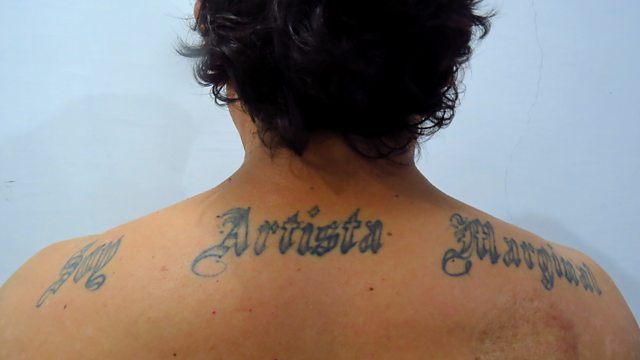Colombia’s art of migration
After years of conflict, Colombian artists make sense of displacement and migration.
Experiences of migration and displacement are finding exciting form in the work of Colombian artists. Their art offers possibilities for new identities, questioning the very idea of home. Presenter Maria Wills Londoño, director of Bogotá’s Banco de la República art museum, meets migrant and displaced Colombian artists to explore art of the spaces ‘in-between’.
Turner Prize-winner Oscar Murillo exhibits work around the globe, yet his starting-point is often family history. In the sound-piece My Name is Belisario, Oscar’s father recounts his migration journey, offering a universal message within a personal tale.
In the Cauca region, Maria meets Julieth Morales, an indigenous artist from the Misak community. Julieth uses Misak fabric known as chumbe to weave textiles combining indigenous and Western knowledge. The fabric is an expression of resistance: to survive, the Misak must accept the world beyond their community.
Colombian artist Carolina Caycedo lives in Los Angeles, but returns to her homeland regularly. She grew up by the Magdalena river, which became a major focus in her work when she learned it was to be dammed. She uses fishing nets as a metaphor for a sustainable mode of environmental engagement.
In Popayán, Maria visits performance artist Edinson Quiñones. His extreme, sometimes violent performances heal past trauma. He explains the piece which defines his career: the ritual removal of a tattoo dedicated to his grandmother.
Image: A tattoo on the shoulders of Edinson Quiñones (Courtesy of Edinson Quiñones)
Last on
Broadcasts
- Sat 30 Oct 2021 16:06GMT���˿��� World Service News Internet
- Sat 30 Oct 2021 22:32GMT���˿��� World Service except Americas and the Caribbean
- Sun 31 Oct 2021 04:32GMT���˿��� World Service
- Sun 31 Oct 2021 19:32GMT���˿��� World Service Americas and the Caribbean, South Asia & East Asia only
- Mon 1 Nov 2021 10:06GMT���˿��� World Service
Podcast
-
![]()
The Cultural Frontline
The Cultural Frontline: where arts and news collide.


